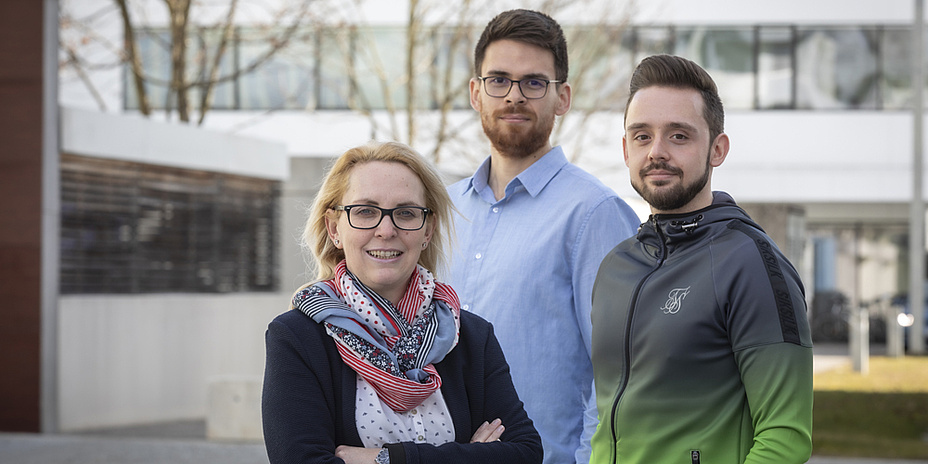Using measuring instruments to protect against explosion

Manuel Maier stands in the middle of the scientific hustle and bustle of the laboratory with the cool demeanour of a mountain lake. The only blob of excitement is his frog-green jacket that peeps out from under his white lab coat. He has buried his hands in his trouser pockets while quietly talking about his research, which has just won him the research prize of the Styrian company Anton Paar.
Continuous Flow Calorimeter
"We're doing research with some pretty horrendous substances here," Maier explains and smiles. "That's why it's so important to have measuring devices like a calorimeter that can accurately measure and control reactions." A calorimeter can be used to determine exactly what heat is released during a chemical reaction. Especially in the pharmaceutical industry and with specialty chemicals, highly reactive substances are used which are not only highly efficient but also particularly sensitive: "Some of these substances ignite immediately in air and some are highly toxic." But because they are highly reactive, they can be used in very small quantities. This is where microreaction technology comes into play, which is the focus of the CCFlow project, among others. Manuel Maier is a PhD student in this project and is responsible for the design of small reactors specializing in certain chemicals, which are produced in a 3D printer. "We want to go from the individual requirements of the chemical industry to a tailor-made reactor that can be produced using a 3D printer. With this design concept, we want to significantly reduce the time needed to develop new types of facilities for the production of active ingredients in quantities for clinical studies." The project uses not only the in-house knowledge at TU Graz and the RCPE competence centre, but also the know-how and infrastructure of scientific and industrial partners.
From batch to flow
The current trend in the pharmaceutical industry is the continuous production of drugs, which also includes flow chemistry. Traditionally, the desired substances are produced in batches – in a kind of large stirred tank. Usually, all the chemicals required for this are placed in a large vessel and the reaction takes place step by step in this or other stirred vessels. In flow chemistry, this selective, discontinuous process is converted into a continuous process. The necessary chemicals are conveyed into a pipe system in which reaction processes then take place and at the end the desired substance is continuously released. "The commercially available measuring instruments are designed for batch production," explains Maier. "If the process method changes, then the measuring instruments must also be adapted in order to obtain the desired result. Without a knowledge of the highly reactive substances used, explosions could even occur."
Further information about the COMET K-Project CC Flow can be found on the project website.
Explosive in everyday working life, calm in private
In everyday working life, things are therefore not exactly without danger for the 28-year-old. Privately, the Styrian scientist likes it a bit quieter. He’s happy to commute from his home town Feldbach to Graz: "I find the combination of working in the city and living outside perfect. I come home, put on my running shoes and in five minutes I'm in the forest. There, it’s quiet and relaxing." Maier is also a passionate musician, so it is not quite so quiet in private: "I play the drums, which gives me a chance to relax after work and it's a great balance."
The future lies in heat measurement
Manuel Maier still has a good year to complete his PhD. It is not yet clear what will happen after that. "But I would like to continue working on our calorimeter. It would be great if a measuring device based on my concept could be built later and also sold on the market."
This research area is anchored in the Field of Expertise “Mobility & Production”, one of five strategic foci of TU Graz.
You can find more research news on Planet research. You can receive monthly updates from the world of science at Graz University of Technology via the research newsletter TU Graz research monthly.
Kontakt
Manuel Christian MAIER
Dipl.-Ing. BSc
Institute of Process and Particle Technology
Inffeldgasse 13/III
8010 Graz
Tel.: +43 316 873 30426
manuel.maier@tugraz.at




